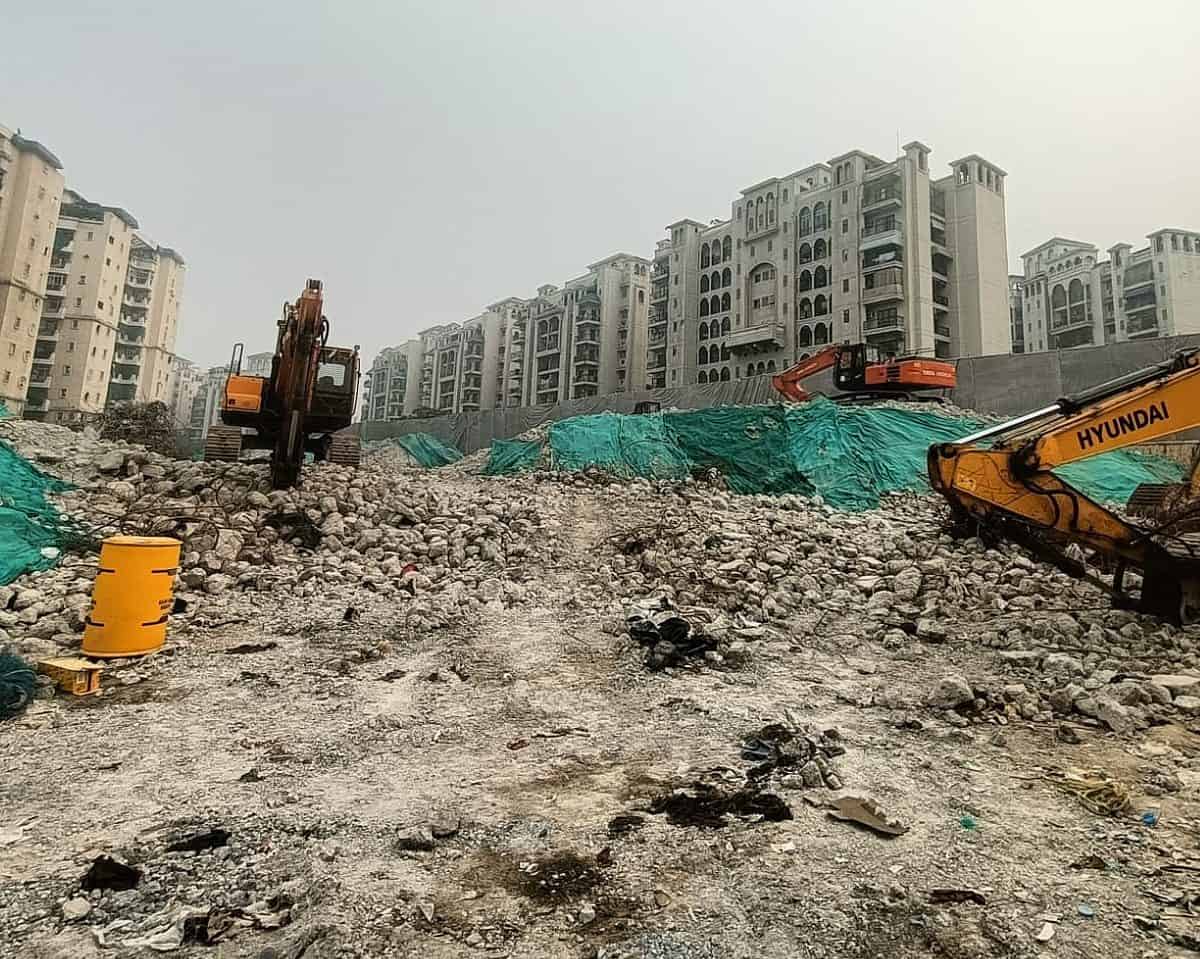
Noida: Embattled residents of Noida’s upscale Emerald Court complex must endure the deafening noise from machines drilling through the rubble of the razed twin towers well into the New Year, experts warn.
Mountains of earth, metal and concrete fly in the face of claims that workers had already carted away 60 per cent of 80,000 tonnes of debris of the skyscrapers demolished after the Supreme Court deemed them illegal and ruled that the remains of the 104-metre structures must be cleared by November 28.
Mayur Mehta of Edifice Engineering, which carried out the demolition and is overseeing the disposal of the rubble, said that the company had expected to be able to finish the work “in a month”, but then came the ban on construction activities because of poor air quality and work was stopped for 25 days last month.
“We are now going at full speed,” Mehta told IANS.
He denied allegations of violating noise pollution rules at the site where Apex and Cayenne stood till the demolition of the two towers comprising 914 apartments in all on August 28.
“The ambience-level sound was 64 decibels (dBA), near the machines it was 78 dbA and at Aster-2, which is closest to the site, the level was 58 decibels,” he said, adding the Central Building Research Institute was part of the survey and that all stakeholders accepted the findings and deemed the levels safe for residents.
Normal conversation is 60 dBA and some Emerald Court residents using measuring devices or mobile apps said they had recorded up to 62 decibels from inside their frontline Aster-2 homes on December 6.
“My submission is, Edifice should not crush reinforced concrete, which is not necessary for removing rubble, till the ground level,” said Anish Bansal, a World Bank executive who lives in Aster-2.
“They can leave structures in basements alone, even if that means making an amendment to their contract with Supertech,” Bansal told IANS.
Acoustics levels of running excavators range between 75-78 dBA, while crawler-mounted rock drillers are even louder. At any given time, until 8 p.m. six to seven such machines work at the site, sandwiched between Emerald Court and ATS Village.
Others said the pace of work has slowed because of the quest for high-value iron.
“The contractor is nothing but a scavenger as his supervisors are told only to remove scrap material from the site for recycling,” said Ajay Mehra, another resident.
At least three residents were showing visible signs of the impact from pollution, which has impeded their speech and other functions.
Divya Kush, a former president of Indian Institute of Architects, said residents of Emerald Court were trapped.
“From the day the twin towers came up, Emerald Court residents were trapped,” Kush told IANS and added that the rubble cannot be removed without first extracting the metal, which would mean noise.
“It is a tricky situation and a problem for the residents, but at the same time the contractor also has very little choice as there is no other established way of doing it,” the architect said.
Health experts warned that the residents of the housing society were literally caught between a rock and a hard place.
“Noise pollution is a big factor especially for cardiac patients and people with sensitive ears,” commented Shimoni Sinha, a general medical practitioner. “Also, pollution has a cumulative effect that does not show the same day you are exposed,” Sinha said.
“Prolonged exposure to sound is indeed harmful,” added Malay Nandi, a prominent oncologist.

